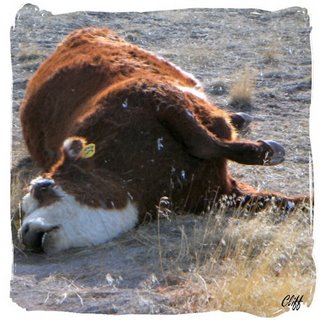 Time magazine had a feature story on Skull Valley. The federal government has now approved and licensed the reservation to store not just nuclear waste but vast quantities of it.
Time magazine had a feature story on Skull Valley. The federal government has now approved and licensed the reservation to store not just nuclear waste but vast quantities of it.Last month (February) the Nuclear Regulatory Commission (NRC) issued a license for a $3.1 billion project that would make the Skull Valley reservation the nation's biggest nuclear-waste holding site, a temporary parking lot for 44,000 tons of highly radioactive spent fuel now being stored at nuclear power plants nationwide. For utilities, it could solve what has been a vexing problem. For tribal officials, the advantages are tangible: as much as $100 million in fees to be paid over 40 years by a Wisconsin-based consortium of utilities, Private Fuel Storage (PFS)..."People say this will destroy the land," says tribal chairman Leon Bear, who brokered the deal. "But how can you poison what is already poisoned?"The tribal chairman's point about the land already being poisoned is well taken. I found suspicious dead cattle just a couple of miles from the reservation (see photo). The twenty or so Goshutes that remain in the valley are surrounded by a chemical and biological testing ground to their West. Bombing grounds to their north. A military chemical depot to their east. Somehow, Skull Valley has become a renoun waste land good for nothing except the very worst that the military can throw at it.
And what is the State's best argument against the federal government's power to place nuclear waste two valleys over from metropolitan Salt Lake City? Can we just say no? Apparently not because it's on Goshute land. The State's best argument to prevent the country's largest nuclear waste deposit in our backyard seems to be to raise concern over the bombing sorties to the north about 50 miles.
The state has filed suit in federal court to void the NRC license on the grounds that the spent fuel would sit dangerously close to an Air Force training path. F-16 fighter jets roar overhead on 7,000 sorties a year. Should one crash into the steel-and-concrete casks, state attorneys argue, cancer-causing radiation could waft over Salt Lake City.

No comments:
Post a Comment